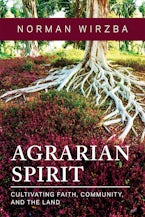"Cement, Earthworms, and Cheese Factories: Religion and Community Development in Rural Ecuador examines the relationship between development and religion and the ongoing negotiation of this relationship in Ecuador. Jill DeTemple argues for an important revision to previous work that portrays contemporary religious movements as resistant to modernity, showing instead that what is happening is an ongoing negotiation and reformation of what modernity and development mean." —Barry Lyons, Wayne State University
"In this book, Jill DeTemple explores the religious origins of modern ideologies of progress and development and the deep, continuous interplay between religion concepts, practices, and communities and development activities in contemporary Ecuador. Only by focusing on this interplay can we understanding of the concrete dynamics of development, and at the same time DeTemple's innovative and nuanced work richly illuminates the broader cultural vitality and mobility of contemporary religion." —Randall Styers, University of North Carolina at Chapel Hill
"Jill DeTemple examines the ways in which people negotiate religious and development discourses, using ethnography as well as historical, religious, political, and economic analyses. She explores how ‘lived religion’ and local conceptions of development combine in ways that challenge both the hegemony of western development discourses as well as the view that modernity is marked by increasing secularization. This book is a timely and valuable contribution to the growing field of studies in religions and development, and will be of interest to scholars and students as well as development practitioners." —Emma Tomalin, University of Leeds
“Eschatology, the part of theology concerned with death, judgment, and the final destiny of the soul and of humankind, clearly belongs to the Western realm of ‘religion.’ In this well-written book, Jill DeTemple illustrates how, historically and in terms of her ethnography of a community in Central Andean Ecuador, it applies to Western notions of development.” —The Americas
“DeTemple’s work focuses more on the ways that religious and development goals get intertwined in specific places and contexts, and the lack of distinct boundaries between the two. But in telling the stories of communities, she shows that many times the goals and assumptions of development workers and ‘those being developed’ are not the same. The ends of development are re-imagined.” —Contesting the Good News
“A result of the book’s focus is that Cement, Earthworms, and Cheese Factories is more useful for development practitioners, both of a secular and religious nature, than those concerned with the politics of development work. For those practitioners, it provides useful reflections on how the negotiation of religious and development discourse becomes constructed in specific and concrete spaces such as kitchens and bedrooms. DeTemple contends that how these discourses are negotiated will have lasting consequences for both development and religious work in Latin America.” —Journal of Latin American Studies
“Jill DeTemple’s excellent book explores the interrelationship of religion, development, and modernity in Latin America, focusing on San Marcos, Ecuador. It discusses ‘things both good and bad’ and negotiates desire, community, religion, and progress in Latin America contexts.”—Journal of Economic Literature.











